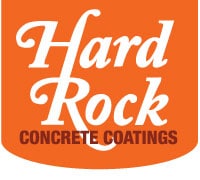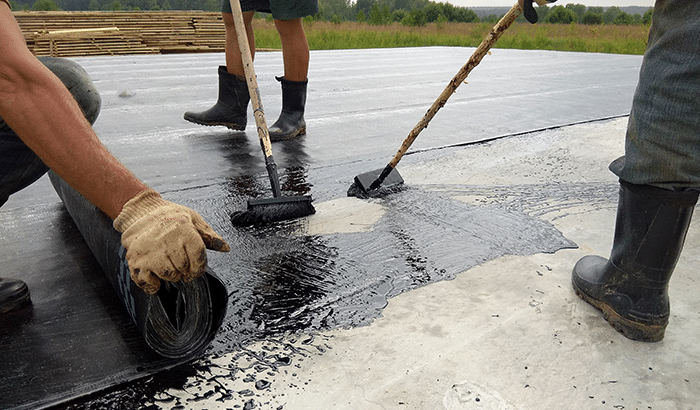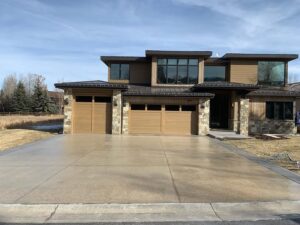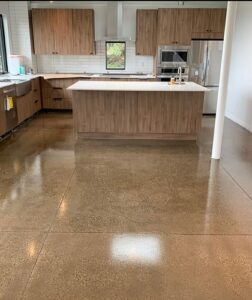Waterproof concrete is a common choice for construction and flooring thanks to its affordable and durable nature.
Virtually every structure built in the U.S. utilizes concrete for the foundation and subfloors. While often covered up inside a home or other structure, it’s still a critical part of the whole. Exterior concrete is more prevalent and noticeable, such as the concrete you see in garages, driveways, sidewalks, patios, and hangars.
Though durable, concrete still needs some love and preparation. Making a conscious choice of concrete with a full awareness of the needs as well as the routine maintenance required is important for all home or business owners.
Today we’re talking about the most commonly neglected facet of concrete: waterproofing.
The Dangers of Water
Usually, water seems harmless for concrete. In fact, that’s how to clean and care for your concrete, right? It’s true that water is generally safe and even useful for your concrete, but you do need to be aware of some of the dangers water can pose for your concrete surface.
- Freezing: The largest threat to your concrete is the freezing process. The cold alone isn’t particularly harmful to your concrete—it’s only when water enters the equation that damage can occur. Water expands as it freezes, and concrete is porous. Therefore, water can seep into the porous surface of the concrete, and then when the temperatures drop, it will expand. This expansion weakens and cracks the concrete, especially near seams and edges.
- Grime: Water can often accumulate on your concrete surfaces. Whether it’s from your sprinklers, snow melting off your home, or slush dripping off your vehicles, it’s going to collect on top of your concrete. This accumulation of water will actually gather and attract dirt, grime, ice melt, and other contaminants that will coat and live on the surface of the concrete. It can damage the concrete, as we’ll talk about next, but it can also leave acidic chemicals and create stains.
- Damage: Water can create cracks and weakness in your concrete, acid, and stains that wear down the surface and leave it vulnerable to scratching and etching. For example, repeated water damage to a concrete patio can increase the chances that your patio furniture will scrape and rust the surface.
As you can see, when water isn’t maintained in relation to your concrete, you’ll experience issues. However, we have a solution for you.
Waterproof Concrete
You can eliminate these issues by properly waterproofing your concrete. There are a few different options, but essentially it entails sealing your concrete so that water can’t permeate the porous surface. Once your concrete is waterproof, you’ll be able to quickly sweep or spray excess water from your concrete surfaces, and the added layer of sealant protection will prevent scratching and other damage to the surface.
Hard Rock Concrete Coatings Specializes in Waterproof Concrete Coatings
From garage floors to driveways to unfinished basements, Hard Rock Concrete Coatings knows exactly how to make your concrete impervious to water as well as adding character. Reach out to our experts to see how our coatings can transform your home. We serve Salt Lake County, Utah, and the surrounding area.




